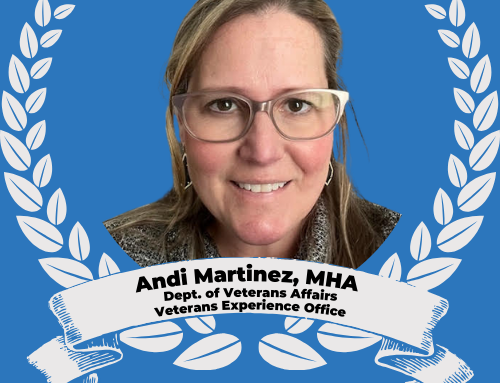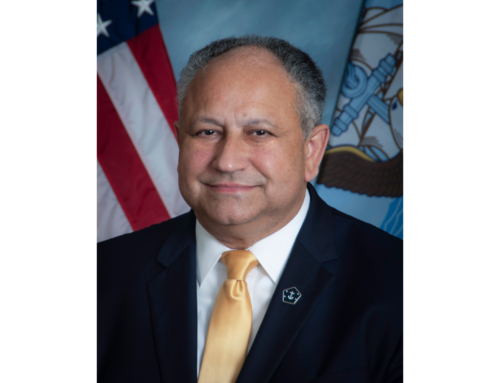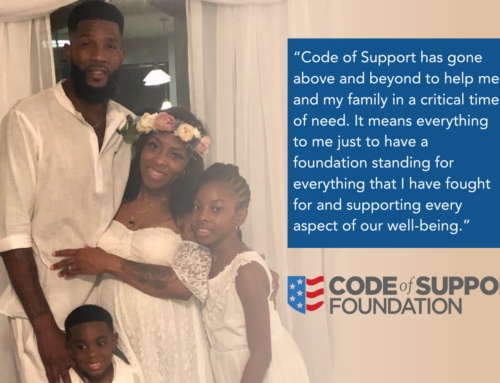This month marks the recognition of two, highly dedicated, acts of professional service for our nation. The first is the month long appreciation of our military service members – better known as Military Appreciation Month. This includes celebrated dates such as Armed Forces Day, a day to honor those who serve in the United States’ armed forces and Memorial Day, a day for remembering those who died while serving in the country’s armed forces. The second is the annual American Nurses Association (ANA) recognition of the Nursing profession which highlights the distinguished level of care nurses provide to their patients. At first glance, the two may not seem directly linked. However, based on my experience as a nurse, and having also served for 38 years in the U.S. Air Force and Air National Guard (ANG), there is a vital correlation between these two service professions.
The link is a “Code.” Each profession has their own specific code of ethics based on mission. The United States Department of Defense has a directive known as the Code of the U.S. Fighting Forces (1) which serves as an “ethical guide” for members of the United States Armed Forces. It consists of six articles addressing how members should act in combat when they must “evade capture, resist while a prisoner or escape from the enemy.” For the ANA, it is the Code of Ethics for Nurses with Interpretive Statements (2). This is a guide for carrying out nursing responsibilities in a manner consistent with quality nursing care and the ethical obligations of the profession.
Codes are more than just words on paper. What makes up each of the respective codes is directed by ethics and values. Ethics are standards by which one should act based on values. Values are core beliefs such as duty, honor, and integrity that motivate attitudes and actions. Ethical values relate to what is right and wrong when making ethical decisions. Ethical values may include some of the following such as: honesty, accountability, fairness, caring, commitment, respect, compassion, integrity and loyalty. Codes provide critical ethical guidance and are put into practice by military service members and nurses in all types of situations.
How does a code of ethics impact American confidence? The National Gallup Poll first started asking the “confidence question” more than 40 years ago about the institutions that Americans regularly read about or interact with in business, government and society. Consider some of the following aspects and similarities of the military and nursing profession ethics from recent Gallup ratings.
According to Gallup, the military has been No. 1 in the Gallup Poll in all but one year for the past 25 years (3). Americans continue to express greater confidence in the military than in 15 other national institutions, with 78% saying they have a “great deal” or “quite a lot” of confidence in it(4). In another Gallup Poll in December 2014, Americans say nurses have the highest honesty and ethical standards. Members of Congress and car salespeople were given the worst ratings among the 11 professions included in the 2014 poll. Eighty percent of Americans say nurses have “very high” or “high” standards of honesty and ethics, compared with a 7% rating for members of Congress and 8% for car salespeople(5). It should be noted that these ratings are not reflective of an overall industry. For instance, two other medical professions — medical doctors and pharmacists – tied for second place at 65%, with police officers and clergy approaching 50% confidence. The outcome is a consistent rate of high confidence for military and nurses by the American public.
Codes that stand the test of time may also evolve with the times. For instance, the Code of the U.S. Fighting Force was established in 1955, modified in 1977 and revised again in 1988 to make it gender-neutral. The ANA recently released its updated Code of Ethics for Nurses with Interpretive Statements that includes addressing the complexities of modern nursing and anticipating advances in health care (6).
We, as civilian Americans, should support those who consistently uphold such ethical values across our nation. As a board member of Code of Support Foundation (COSF), I would encourage Americans to sign the Code of Support. The Code of Support gives meaning to the words “Support Our Troops.” It is a set of six simple promises all Americans (the 99%) can make to our service men and women (the 1%) who sacrifice so much for our nation. The Code of Support is a parallel document to the military “Code of Conduct” in which our men and women in uniform pledge that they are prepared to give their lives in defense of our country.
COSF makes it easy to take that first step and demonstrate support for the millions of our service members, veterans and their families, including those who have spent the past 14 years fighting two wars. If you haven’t signed the Code of Support, please take just two minutes of your time to read and sign the Code of Support.
by Dr. Irene Trowell-Harris, R.N. Ed.D., Maj Gen, USAF Ret., Code of Support Foundation Board Member
References
(1) Code of Conduct for the Armed Forces of the United States usmilitary.about.com/od/theorderlyroom/l/blcode.htm
(2) Nursingworld.org http://nursingworld.org/MainMenuCategories/EthicsStandards/CodeofEthicsforNurses/AboutTheCode.html
(3) Gallup Poll: Confidence in Government, President at New Low, by Andrea Billups, June 30, 2014, Newsmax
(4) Gallup Poll: Americans Most Confident in Military, Least in Congress by Jeffrey M. Jones June 23, 2011, Newmax
(5) Gallup Poll: Americans Rate Nurses Highest on Honesty, Ethical Standards by Rebecca Riffkin, December 2014, Newsmax
(6) The American Nurse, March/April 2015, Vol 47, No. 2
Related Posts
Categories
Tags
Recent Posts
- Andi Martinez, MHA to receive the 2024 Toast To Our Troops MG Alan B. Salisbury Salute to Service Award for Individual Impact
- The Honorable Carlos Del Toro to deliver remarks at TTOT24
- What We Do Wednesday: From struggling, to pursuing a fulfilling passion.
- Brianna Keilar to serve as tenth annual Toast To Our Troops emcee
- Mission Monday: Bri







